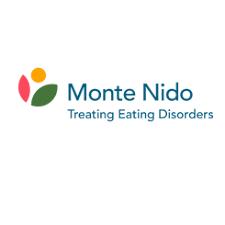Monte Nido - Mountain Nest
Overview
Monte Nido Clementine, located in Calabasas, California, is a specialized eating disorder treatment center set on two acres of tree-covered land. This facility is specifically designed to provide comprehensive care for female adolescents struggling with eating disorders. The center offers a continuum of care that begins with residential treatment, which provides a highly structured and supportive environment. As clients progress in their recovery, they have the option to transition to a Partial Hospitalization Program (PHP) or an Intensive Outpatient Program (IOP), depending on their individual needs and level of progress.
The site places a strong emphasis on individualized therapy, recognizing the importance of tailored care for each adolescent. The center offers a variety of therapeutic modalities like group therapy, and family therapy. Collaboration with parents and caregivers is a key component of the treatment process, with the goal of equipping the entire family with the tools and support needed to heal. In addition to traditional therapies, the center incorporates nutrition groups and movement therapy into its comprehensive treatment plan. These components are designed to help clients develop a healthier relationship with food and their bodies. The center also provides 24-hour on-site medical oversight and nursing care, ensuring that clients receive continuous support and monitoring throughout their stay.
The Center is committed to maintaining the highest standards of care, as reflected in its accreditations. The center is accredited by The Joint Commission, the Residential Eating Disorder Consortium, and the Eating Disorders Coalition. These accreditations underscore the center's dedication to providing safe, effective, and evidence-based treatment for adolescent girls battling eating disorders.
Monte Nido - Mountain Nest at a Glance
Payment Options
- Private health insurance
- Cash or self-payment
- Federal military insurance (e.g. TRICARE)
- Medicaid
- Aetna
Assessments
- Comprehensive mental health assessment
- Complete medical history/physical exam
Age Groups
- Adolescence program
Ancillary Services
- Diet and exercise counseling
- Education services
- Mental health services
- Social skills development
Accreditations
The Joint Commission:

The Joint Commission accreditation for addiction and behavioral health is a prestigious recognition signifying a facility's commitment to delivering high-quality care and safety for individuals dealing with substance abuse and mental health issues. It involves rigorous evaluations and assessments, ensuring patients receive evidence-based treatment and exceptional care. This accreditation demonstrates a facility's dedication to continuous improvement and ethical practices, building trust among patients and healthcare professionals seeking top-tier addiction and behavioral health services.
Treatment At Monte Nido - Mountain Nest

Conditions Treated
Mental health treatment:
Mental health treatment provides a safe and structured environment where individuals can receive professional care and support for their mental health challenges. Within the facility, trained therapists, counselors, and medical staff work together to create personalized treatment plans tailored to each person's needs. Patients might participate in a variety of therapies, including individual counseling, group therapy, and possibly medication management. The goal is to equip individuals with the tools and strategies they need to cope with their conditions and lead fulfilling lives.

Levels Of Care
Luxury Treatment:
Luxury rehab goes beyond counseling in a lavish hotel setting. It represents the pinnacle of addiction treatment choices. These upscale facilities prioritize tailored approaches aimed at comprehensive healing. To foster holistic recovery – encompassing spiritual, physical, and mental aspects – luxury rehabs integrate a blend of health-promoting activities and alternative therapies, seamlessly merging mindfulness with scientific methodologies.
Aftercare:
Aftercare is the continued support and care that individuals receive following the completion of their primary treatment program for substance abuse or addiction. This phase aims to aid individuals in maintaining their sobriety, improving personal skills and coping strategies, and integrating back into society. Aftercare can include ongoing therapy, support group meetings, education, and monitoring, which are crucial for preventing relapse and promoting long-term recovery. Through a combination of community support, accountability, and personal development, aftercare provides a structured pathway for individuals to continue their recovery journey in a supportive environment.
Hospital inpatient treatment:
Inpatient treatment involves an intensive, residential therapeutic program designed to treat serious addictions or other medical conditions. With a typical stay ranging from 30 to 90 days, individuals receive a structured regimen of various therapies including individual and group counseling, behavioral therapies, and family counseling. Under professional supervision, patients immerse themselves in a supportive environment, conducive to addressing underlying issues and promoting long-term recovery.
Hospital inpatient/24-hour hospital inpatient:
The 24-Hour Hospital Inpatient for Addiction Treatment program provides continuous medical care and support for those battling substance use and addiction. Located within a hospital setting, this focused inpatient program caters to both immediate and ongoing patient needs, guaranteeing their safety, stability, and thorough rehabilitation.
Partial Hospitalization Program:
A partial hospitalization program (PHP) is a short-term form of intensive rehab, usually for those with acute symptoms that are hard to manage but don’t require 24-hour care. PHPs have structured programming (i.e. individual and/or group therapy), and usually meet 3-5 days a week for around 6 hours (i.e. 9am-3m). Some PHPs are residential (patients sleep on site) and some are not, so patients sleep at home. PHPs can last from 1-6 months, and some offer transportation and meals.
Intensive outpatient treatment:
Intensive outpatient (IOP) supports clients in maintaining their sobriety by providing tailored, high-quality care that adapts to their changing requirements. Clients participate in numerous weekly treatment sessions, generally receiving between nine to twenty hours of outpatient care. As clients achieve stability, the treatment frequency and intensity gradually diminish. Many intensive outpatient rehabilitation centers offer a range of services, including addiction counseling, training in life skills essential for recovery, and medication-assisted treatment (MAT). Additionally, evidence-based complementary therapies are frequently integrated into the program.

Treatment Modalities
Individual psychotherapy:
Individual therapy, often referred to as psychotherapy or counseling, is a one-on-one therapeutic interaction between a trained therapist and a client. It provides a confidential space for individuals to explore their feelings, beliefs, and behaviors, working through challenging memories, experiences, or emotions. The therapist facilitates self-awareness, promotes personal growth and insight, and offers coping strategies to manage specific issues like stress, anxiety, depression, and other life challenges. The ultimate goal is to improve the individual's mental well-being and enhance their overall quality of life.
Cognitive Behavioral Therapy:
Cognitive Behavioral Therapy (CBT) is a widely practiced form of psychotherapy that seeks to address dysfunctional emotions, behaviors, and thoughts through a goal-oriented, systematic process. It encourages individuals to challenge distorted cognitions and change destructive patterns of behavior by promoting self-awareness and effective coping strategies. CBT is often used to treat a range of disorders including anxiety, depression, and stress, making it a versatile and practical therapeutic approach. Through enhancing an individual's capacity to manage life's challenges, CBT contributes to improved mental well-being and overall quality of life.
Dialectical Behavior Therapy:
Dialectical Behavior Therapy (DBT) for addiction treatment is a comprehensive cognitive-behavioral approach initially developed to treat individuals with borderline personality disorder. Adapted for addiction, DBT emphasizes the development of four core skills: mindfulness, emotion regulation, distress tolerance, and interpersonal effectiveness. Through individual and group sessions, patients learn to understand their triggers, manage negative emotions, cope with cravings, and improve relationships, all of which contribute to long-term recovery and reduced substance use.
Eating Disorder Treatment:
Eating disorders encompass conditions like anorexia, bulimia, binge eating, and unhealthy eating habits. Some mental health experts view these disorders as akin to food addiction, where food is used compulsively, much like substances in drug or alcohol addiction. Consequently, specific substance abuse treatment programs may include support for eating disorders. Furthermore, eating disorders can co-occur or be diagnosed alongside drug and alcohol addiction.
Group counseling:
Group counseling provides a supportive environment where individuals share personal experiences and insights, under the guidance of a professional counselor. It facilitates self-awareness, fosters interpersonal learning, and helps members work through personal and relational challenges. Through shared dialogue and reflection, individuals learn coping strategies, gain emotional support, and experience personal growth within a communal setting.
Creative Arts Therapy:
Creative Arts Therapy is a therapeutic approach that integrates various forms of artistic expression—including visual arts, music, dance, drama, and poetry—to promote emotional, mental, and physical well-being. By engaging in the creative process, individuals are given an outlet to communicate, process, and resolve complex emotions, traumas, and challenges in a non-verbal and transformative manner. Therapists in this field are trained professionals who facilitate healing and personal growth through the power of artistic mediums.
Experiential Therapy:
Experiential therapy is a form of therapy in which clients are encouraged to surface and work through subconscious issues by engaging in real-time experiences. Experiential therapy departs from traditional talk therapy by involving the body, and having clients engage in activities, movements, and physical and emotional expression. This can involve role-play or using props (which can include other people). Experiential therapy can help people process trauma, memories, and emotion quickly, deeply, and in a lasting fashion, leading to substantial and impactful healing.
Life Skills:
Life skills training encompasses a comprehensive set of abilities essential for individuals to thrive in society. These encompass time management, career guidance, financial acumen, and effective communication. In the context of addiction recovery, true success goes beyond mere abstinence; it's about flourishing. Life skills instruction equips individuals with the practical tools needed to navigate society successfully, paving the way for a fulfilling life and, consequently, lasting sobriety.
Nutrition Therapy:
Nutrition therapy, often referred to as medical nutrition therapy (MNT), harnesses the power of diet to address physical, emotional, and medical challenges. Expert nutritionists or registered dietitians craft specialized dietary strategies for individuals, guiding them to enhance both their physical and psychological well-being through food choices.
Trauma-related counseling:
Trauma-related counseling is a specialized form of therapeutic intervention aimed at assisting individuals who have experienced distressing, life-altering events. This approach focuses on helping clients process their traumatic experiences, develop coping mechanisms, and rebuild a sense of safety and trust. Counselors trained in trauma therapy use evidence-based techniques to support healing and resilience, ensuring survivors can move forward and lead fulfilling lives despite their past adversities.
Individual counseling:
In individual therapy, a person engages in a one-on-one session with a qualified therapist or counselor. This therapeutic approach is crucial in successful substance abuse treatment because it delves into the underlying causes of addiction, addressing issues the individual may encounter in their familial, social, and professional or academic environments.
Ancillary Services
Languages
- English
Special Programs
- Persons with eating disorders
- Clients who have experienced trauma
- Persons 18 and older with serious mental illness (SMI)

Additional Locations
Contact Information
DISCLAIMER: The facility name, logo and brand are the property and registered trademarks of Monte Nido - Mountain Nest, and are being used for identification and informational purposes only. Use of these names, logos and brands shall not imply endorsement. BetterAddictionCare.com is not affiliated with or sponsored by Monte Nido - Mountain Nest.






